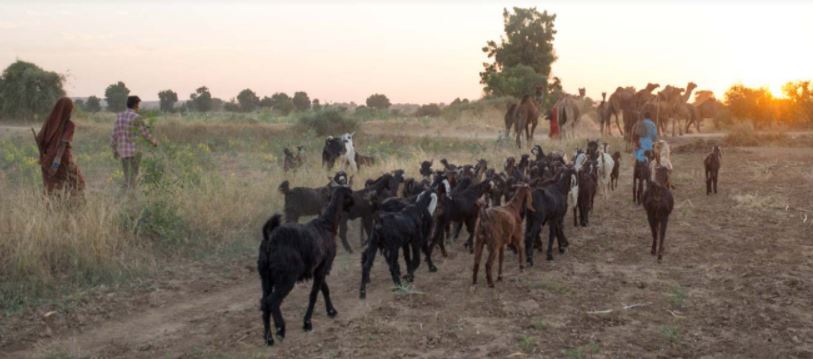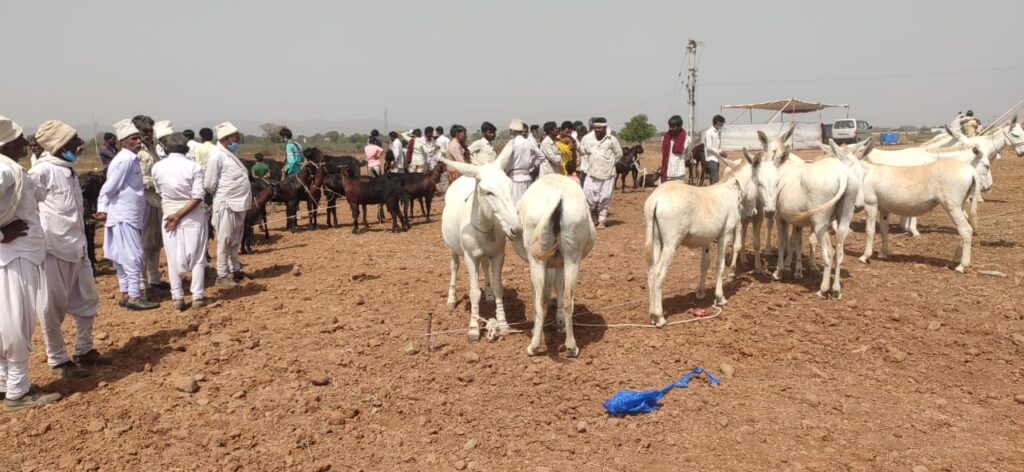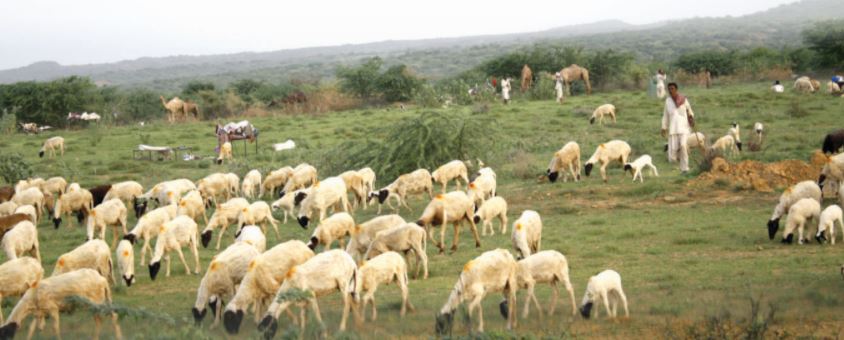Purpose of seminar is to look into facets of Pastoralism in India with special focus on Saurashtra region
Sharat K Verma/Solution World Bureau
Rajkot, March 26: To strengthen economic status of Maldharis nomadic pastoral community from Gujarat’s Saurashtra region and diversify their livelihood options, a national seminar is being held here on Saturday.
India has around 35 million nomadic pastoral community which stands at 6% of the country’s population. Gujarat is often hailed for its pastoral lifestyle, culture and for supporting a huge livestock population of 7.4 million (as per a DownToEarth, 2018 report). The land of Saurashtra recites the sagas of Pastoral lives, tales of their rituals and lifestyle, one cannot find any district of Saurashtra without its Maldharis– Bharwad, Rabaris, Ahirs and Charan who are the dominant nomadic pastoral communities of this region.
The contribution of Maldharis in Saurashtra’s economy is well known, their culture has permeated in the region. Their livelihood patterns have helped the region in several ways. In order to help the community to strengthen their economic status and diversify their livelihood options, a one-day national seminar will be organized by a Kutch Based NGO- Sahjeevan with close collaboration of Department of Animal Husbandry, Government of Gujarat and Surendranagar District Co-operative Milk Producer’s Union Ltd. (Sursagar Dairy). Minister of State for Agriculture and Farmers Welfare, Parshottam Rupala would inaugurate this seminar as the chief guest.

The purpose of the seminar is to evolve strategic discussion around the Pastoral production systems of Saurashtra with the need of enhancing livelihood opportunities thereby channelizing the efforts of breed and habitat conservation.
The broad objective of the meeting would be to deliberate around the following:-
-To create task force for the district of Rajkot that enables convergence of actions around enhancing pastoral livelihoods;
-Devise mechanism to secure support and enabling environment with the financial institutions so as to help establish value chain-based enterprises along with pastoral dairy products; -Enable collaborative processes and tools with academic institutions, departments and institutions both government and private for directed inputs towards research and policy framework.
Recently, ICAR-NBAGR, New Delhi has recognized Halari Donkey as India’s one of three domesticated donkey breeds and several researches have endorsed the value and benefits of Halari donkey milk which has sequentially given much attention to the breed from around the world. Sadly, Halari Donkey’s census revealed there are only 650 animals that can be found in its native track and hence is categorized in the threatened category. One of the major aims of the national seminar is to ponder upon the conservation strategy with the help of experts, scientists from the field, facilitating the state and national governments to formulate a sustainable plan.

Apart from this, deliberations around the comprehensive development of Saurashtra’s Pastoralists, putting forward the need for definition of Pastoralism and the census of the community will be prima facie objectives of the national seminar. The event would also hold discussions around the role and strategies of the government for the Maldhari community. This seminar will be organized at Atal Bihari Vajpayee Auditorium, Arya Nagar, Rajkot on Saturday (March 27, 2021) from 10:30 am to 4:30 pm. The seminar intends to give a glimpse of Maldhari’s culture, their lifestyle along with several livestock products like camel milk by-products, goat milk by products and also sheep wool made products will be exhibited. Around 150 Maldhari men and women would participate in this seminar from the districts of Dwarka, Surendranagar, Rajkot, Jamnagar, Junagarh and Kutch.
Sahjeevan and Center for Pastoralism, for over three decades has worked for conservation and helping in ecological restoration for Banni’s Buffaloes, Kharai Camel, Sindhi Horse in Kutch along with close cooperation from the communities like Rabari and Bharwads. The organization with the help of Department of Animal Husbandry, Government of Gujarat for the last five years has been working in Saurashtra’s Surendranagar, Jamnagar, Junagarh, Rajkot and Dwarika district for breed recognition and their conservation. Currently, the organization is working on developing Goat and Halari Donkey’s milk value chain, facilitating the community with sustainable market linkages for sheep wool and its by-products as well as looking into livestock’s health and building community-based organization for the Maldharis. As a result of continuous interventions around goat milk, Surendranagar District Co-operative Milk Producers’ Union Ltd have started procurement of goat milk and AMUL has extended marketing support for building awareness around the benefits of goat milk.
The Department of Animal Husbandry-Gandhinagar through its Rashtriya Krishi Vikas Yojana (RKVY) has put a requisition for financial help for setting up Goat Milk Dairy. A new product, Goat Milk Greek Yoghurt is all set to be launched during this event.
